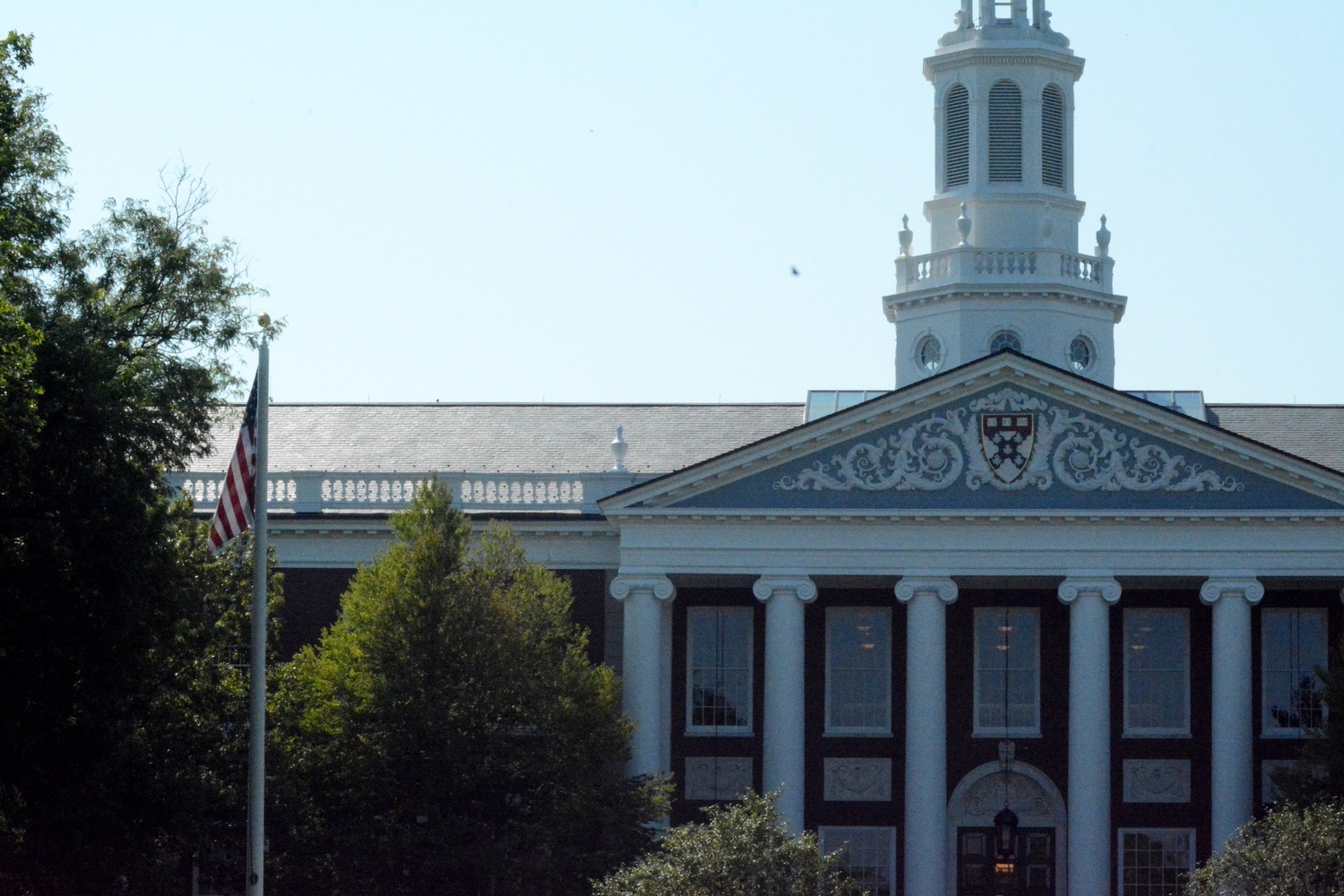
News
When Professors Speak Out, Some Students Stay Quiet. Can Harvard Keep Everyone Talking?

News
Allston Residents, Elected Officials Ask for More Benefits from Harvard’s 10-Year Plan

News
Nobel Laureate Claudia Goldin Warns of Federal Data Misuse at IOP Forum

News
Woman Rescued from Freezing Charles River, Transported to Hospital with Serious Injuries

News
Harvard Researchers Develop New Technology to Map Neural Connections
HBS Graduates Face a Tougher Job Market

2024 was a bad year for Harvard Business School graduates: down from 2023, 15 percent of graduates with a Masters in Business Administration seeking employment did not receive a job offer, and one percent of graduates postponed their search entirely.
The employment rate for newly minted MBA holders — 10 percent lower post-graduation employment than two years ago — reflects a broader economic downturn and workforce downsizing among finance companies. In 2023, the outlook was only slightly better, with 85 percent of job seekers receiving an offer.
Students at Harvard’s business school are not alone. In the same two year period, post-graduation employment for MBA holders at Stanford University was five percent lower and students from the University of Pennsylvania’s Wharton School were six percent less likely to receive an offer of employment.
HBS first-year John D. Hodson said he thinks that the trend reflects a changing job market for finance and business.
“If you look at banks and consulting firms specifically, their hiring numbers will fluctuate depending on demand,” Hodson said. “I think when you see the employment numbers fluctuate for MBAs, a lot of times the biggest driver is hiring metrics across those big employers. I think in the last year or two, they constricted some of those.”
The majority of HBS graduates go into finance and consulting. Major companies like Bain Capital, McKinsey, and Amazon typically hire dozens of MBA graduates from top business schools.
But some of these companies have been making changes in recent years. Consulting firm McKinsey, for example, cut 2,000 jobs in February 2023 and 500 more last October. BlackRock, a private equity company, made similar moves, eliminating 500 roles in 2023 and cutting 600 more in 2024.
“I had heard from MBAs a year or two above me that the last two years have been a tougher hiring market, and I think that’s really just a function of the macroeconomic climate with interest rates and hiring slowing down, rather than a decreasing value in the MBA,” Hodson said.
“For me, Harvard is still very much the tried and true brand name in any type of MBA career path that’s pushing you towards finance and investment,” he added.
HBS first year Christian E. Mackey said that on campus, students have “felt that the job market was tougher” since he arrived.
“I know it’s been at least a thing for the past two years,” Mackey said. “I don’t think that’s a specific-to-HBS thing.”
Vidhan Bhaiya, a HBS first year student, attributed the shift in employment rate to students choosing to enter the startup market.
“This number is perhaps more indicated by some self-selection that happens in the kinds of roles that MBA graduates are looking for,” Bhaiya said. “I do know that there’s also a greater interest in entrepreneurship these days, and that could also factor into maybe people having chosen to be unemployed till they figure out what they do.”
“To me, that’s a net positive in that we want people at HBS to be able to take risks, which don’t necessarily involve a stable job but to go out and actually go create a meaningful difference in the world,” he added.
In 2024, 14 percent of MBA graduates — nearly half of the students who chose not to seek employment after graduation — started their own business. But that number has stayed relatively constant since the pandemic, and it is not included in the percentage of students who sought employment.
HBS graduates that do receive job offers, however, enjoy a $175,000 median base salary and $30,000 median signing bonus.
Jana P. Kierstead, the executive director of the MBA and Doctoral Programs and External Relations, wrote that the employment drop reflects a change in graduate preferences in a Monday email.
“While many of the traditionally popular fields — consulting and finance, for example — remain important paths for many graduates, many more than in past years are choosing to work in tech, or to join or create startups and search funds,” Kierstead wrote. “A full quarter of our graduates are now founders or early joiners at graduation.”
But Kierstead also acknowledged the particular economic constraints on more recent graduates of the business school. She added that several companies’ decisions to hire fewer employees has indirectly had an effect.
“As is true in the broader economy, there are years where hiring is up or down, and finding a job is less or more difficult as a result,” Kierstead wrote. “In most years, HBS graduates receive on average two offers, and 85-95 percent have accepted an offer three months after graduation.”
“The Classes of 2023 and 2024 faced a more challenging market,” she added.
—Staff writer Sarah F. Silverman can be reached at sarah.silverman@thecrimson.com.
—Staff writer Graham W. Lee can be reached at graham.lee@thecrimson.com. Follow him on X @grahamwonlee.
Want to keep up with breaking news? Subscribe to our email newsletter.
